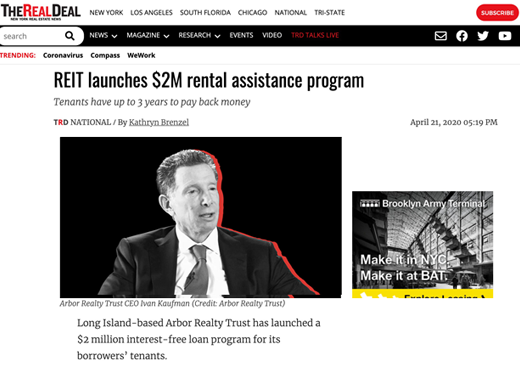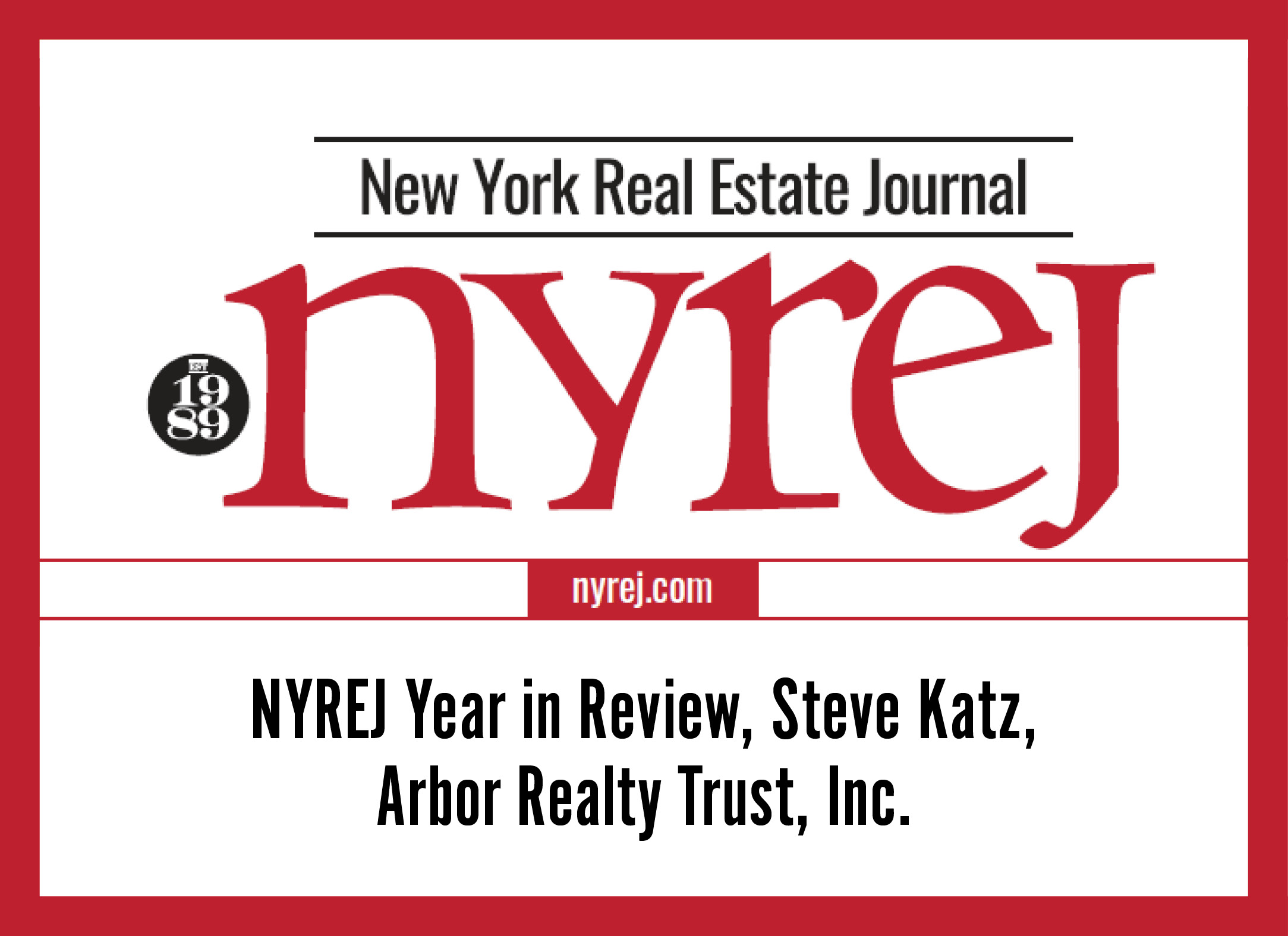REIT launches $2M rental assistance program
Long Island-based Arbor Realty Trust has launched a $2 million interest-free loan program for its borrowers’ tenants.
The real estate investment trust, which is headquartered in Uniondale and is a multifamily and commercial lender, will contribute $1 million to the fund, representatives for the company said. Landlords — who must be Arbor borrowers to participate — will match Arbor’s contributions and must provide a minimum of $10,000 to the fund.
To qualify for rental assistance, tenants must prove they have suffered at least a 30 percent drop in income and have a rent of $2,000 or less.
Under the program, if a tenant needs $3,000 to cover rent for the next two months, Arbor and the landlord would each provide $1,500. The loan could be repaid over as long as three years, depending on the tenant’s circumstances.
Other companies are offering breaks to borrowers. For example, Community Bank, one of New York City’s largest multifamily lenders, is allowing borrowers hurt by Covid-19 to either pay only interest and escrow payments for six months or defer principal and interest for six months.
A moratorium on evictions is in place in New York through mid-June. Landlords are bracing for a drop in rent payments next month as the coronavirus pandemic continues. Tenant advocates in New York and Pennsylvania have called for a rent strike May 1. State and federal officials have proposed legislation that would temporarily suspend rent and mortgage payments.






